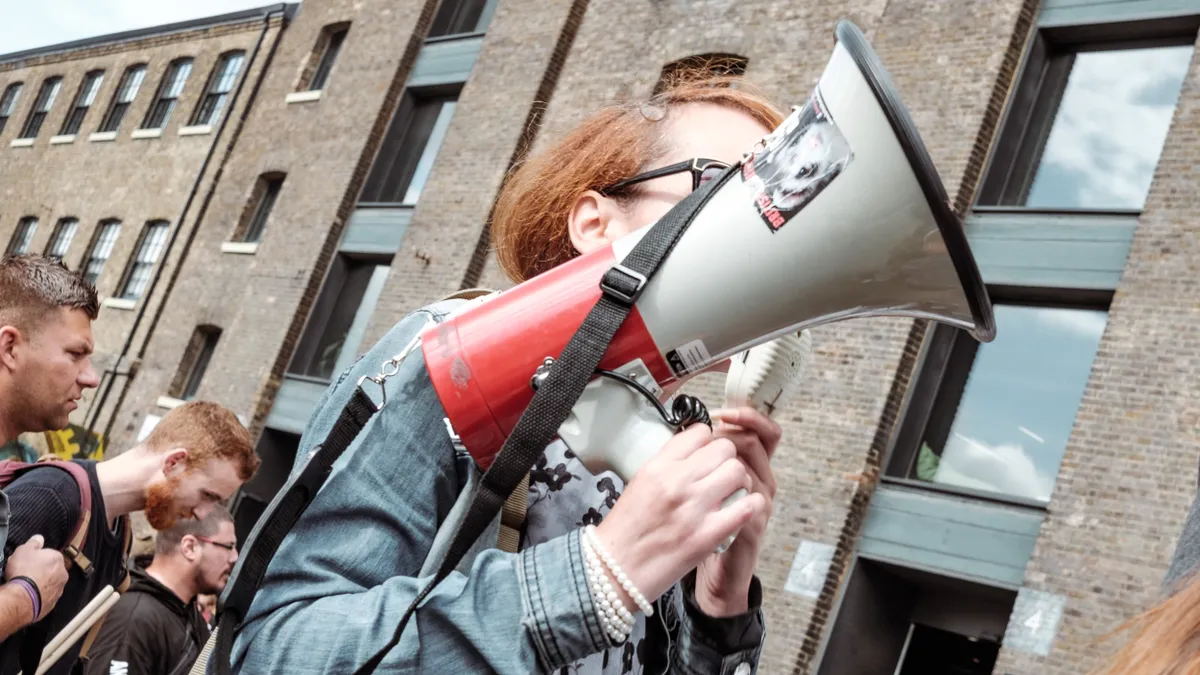Dive Brief:
- Corporate giants including Amazon, United and Delta Airlines have turned a profit every year since 2008, CNBC reported, and now their workers are fighting for a greater cut. Although labor wages have risen since the crash, they still "haven't reached their pre-crisis levels and aren't anywhere close to catching up to soaring profits," Axios said.
- Large demonstrations for higher wages and better benefits so far this summer have included widespread worker strikes related to Amazon's Prime Day and the airline catering workers union staging a protest for higher pay at Ronald Reagan National Airport in Washington, D.C.
- Many of these corporations have used much of their profits to buy back their own shares, CNBC reported, despite their workers' consistent requests for wage increases. S&P 500 companies spent more than $200 billion on buybacks in Q1 of this year, The Wall Street Journal found.
Dive Insight:
Weekly wages increased by about 2.6% each year between 2008 and 2018, the U.S. Bureau of Labor Statistics (BLS) found, growth that is disproportionate to the executive wage increase over that same time frame, CNBC said. Along with a fair and livable wage, union workers are fighting for improved working conditions, health insurance and benefits and sustainable retirement plans.
"The root of the tension [between labor and corporations] is that wage growth has not kept pace with an increase in productivity and the cost of living" even though unemployment is the lowest it's been in 50 years, economists told CNBC.
These "real, fundamental improvements since 2015" are "against a very low threshold for many workers," economist Diane Swonk told The Washington Post.
Amazon failed to pay its workers overtime during the two-day Prime Day push, HR Dive found.
Airline catering workers, some of whom CBS News found make as little as $8.46 per hour, similarly demanded higher wages and more affordable health insurance.
The protests are gaining nationwide attention; 2020 presidential candidates Sen. Elizabeth Warren, D-MA, and Sen. Bernie Sanders, I-VT, attended the airline catering worker protest July 23 and spoke with supporters, whose rallying chant was "One Job Should Be Enough."
Even non-unionized workers are taking to the streets and to social media to publicize their pay and working conditions. Many union and non-union workers are affiliated with the larger umbrella movement, Fight for $15, which is working for a federal $15 minimum wage.
In Seattle, one of the few American cities to have mandated a $15 minimum wage, many in the restaurant industry threatened to relocate. But Jennifer Romich, a University of Washington social policy researcher, told Vox that "the Seattle newspaper every month has a story about 40 new restaurants opening."
But Joseph Song, an economist at Bank of America Merrill Lynch, told Axios the Fight for 15% movement "is just the beginning of better wage dynamics," adding that wage growth has risen 2.9% in the past year.














